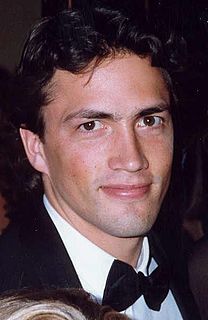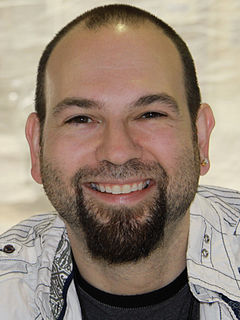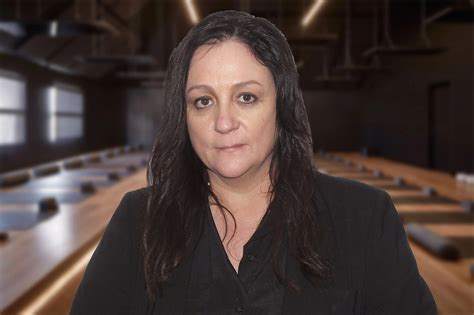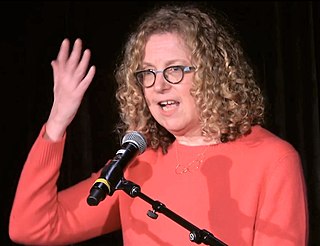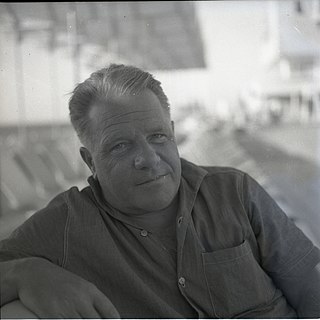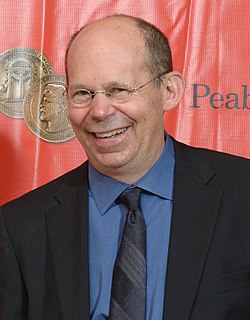Top 1200 Telling Quotes & Sayings - Page 5
Explore popular Telling quotes.
Last updated on April 19, 2025.
I look at some of the great novelists, and I think the reason they are great is that they're telling the truth. The fact is they're using made-up names, made-up people, made-up places, and made-up times, but they're telling the truth about the human being- what we are capable of, what makes us lose, laugh, weep, fall down, and gnash our teeth and wring our hands and kill each other and love each other.
I feel like there's a voice in my head, always, telling me every idea is brilliant, and another telling me every idea is the worst. And they argue in my head until somebody wins, until I solicit an audience to be, like, 'Will you help me figure this out? Is this the best or the worst idea?' And they tell me!
Experts in ancient Greek culture say that people back then didn't see their thoughts as belonging to them. When ancient Greeks had a thought, it occurred to them as a god or goddess giving an order. Apollo was telling them to be brave. Athena was telling them to fall in love. Now people hear a commercial for sour cream potato chips and rush out to buy, but now they call this free will. At least the ancient Greeks were being honest.
The idea is that Jodie Foster is with her child and she's going back to New York from Germany with her husband's body. She loses her child on a plane, and you think, 'How can that happen?' There's no record of her having brought a child onto the plane, and the captain is left wondering about whether she's telling the truth. You never really know if she's telling the truth or not.
There's no quit in our family. Our dad was the chief proponent of that. [On the set] we were constantly telling each other, Stay true to the story, we know that we love each other, keep communication open. We knew how unique this was-you're doing a movie that really could be put out there all over the world, and you're telling this personal story about your family.
It is better to be divided by truth than to be united in error. It is better to speak the truth that hurts and then heals, than falsehood that comforts and then kills. It is better to be hated for telling the truth than to be loved for telling a lie. It is better to stand alone with the truth, than to be wrong with a multitude. It is better to ultimately succeed with the truth than to temporarily succeed with a lie. There is only one Gospel.
My advice to myself and to everyone else, particularly young people, is to turn on, tune in and drop out. By drop out, I mean to detach yourself from involvement in secular, external social games. But the dropping out has to occur internally before it can occur externally. I'm not telling kids just to quit school; I'm not telling people to quit their jobs. That is an inevitable development of the process of turning on and tuning in.
Love makes you weak. This I know for sure. Mom loved Roger. Roger loved Mom.And look what happpened there. She died. She thought her love made her strong. She kept telling me-after she was diagnosed-she ket telling me, "I'm going to beat this Kyra. I'm going to come out of it. I love you and I love your father and that love is my strength. You're my strength.
I never wanted to be an actor. My dad was an actor, and he never brought joy home, so I didn't view it as something that I would want to do. But I got fired as a secretary, and then I started studying, I started doing it just to earn money. And it took me a long time to learn to love it. And what I loved was telling a story. I tried to avoid making plays or films that weren't telling a story that I felt was important. I discovered in the process that it makes you more empathic because you have to enter someone else's reality and learn to see through many other people's eyes.
European militants recognize Mumia Abu-Jamal, and the Mexican militants followed their example and legitimated his work because the Europeans said, "Hey, Mumia Abu-Jamal is relevant in the US. I, the European, am telling you. I am your political guide, your icon, your mentor for political references. I am telling you that you should support the relevant causes."
Modeling is a very hard job. I know that sounds like a really shallow thing to say, but you have people pulling on your hair all day, telling you what to do, fitting you, telling you to bend over, hitting you, taking your shoes off, throwing you up against a wall - it's a lot. You have to really be able to handle yourself and bring something. It's not just enough to have a cute body and jump up in the air and go, "wow!"
So you want another story?" Uhh... no. We would like to know what really happened." Doesn't the telling of something always become a story?" Uhh... perhaps in English. In Japanese a story would have an element of invention in it. We don't want any invention. We want the 'straight facts,' as you say in English." Isn't telling about something--using words, English or Japanese--already something of an invention? Isn't just looking upon this world already something of an invention?
Ezra clapped his hands. "all right," he said. "In addition to the books we're reading as a class, I want to do an extra side project on unreliable narrators." Devon Arliss raised her hand. "what does that mean?" Ezra strode around the room. "well, the narrator tells us the story in the book, right? But what if... the narrator isn't telling us the truth? Maybe he's telling us his skewed version of the story to get you on his side. Or to scare you. Or maybe he's crazy!
The idea of the book ["The Japanese Lover"] came in a conversation that I had with a friend walking in the streets of New York. We were talking about our mothers, and I was telling her how old my mother was, and she was telling me about her mother. Her mother was Jewish, and she said that she was in a retirement home and that she had had a friend for 40 years that was a Japanese gardener. This person had been very important in my friend's upbringing.
Any kind of dictatorship, I'm uneasy. I just don't like dictators. I don't like crowds. I don't like hordes, and I don't like other people telling me what to do. This is probably a reaction against people telling me what to do when I was a kid. I won't join any group, espouse a cause against some other people.
One of the challenges is to create an equally positive, satisfying sense of femininity and feminine identity in a different way so that there are things you're saying yes to and satisfying that urge that your daughter has to be assert her girlness. The surface level of the culture, and really several inches into it, makes that very hard to do. I hate to put another thing on parents' plates. But the culture is very intentional in what it's telling your daughter and what it's telling you about the message of femininity. And if you're not intentional and conscious back, you lose.
I think that people have to have a story. When you tell a story, most people are not good storytellers because they think it's about them. You have to make your story, whatever story it is you're telling, their story. So you have to get good at telling a story so they can identify themselves in your story.
The telling of stories, like singing and praying, would seem to be an almost ceremonial act, an ancient and necessary mode of speech that tends the earthly rootedness of human language. For narrated events always happen somewhere. And for an oral culture, that location is never merely incidental to those occurrences. The events belong, as it were, to the place, and to tell the story of those events is to let the place itself speak through the telling.
Fairy tales have always been about getting through the worst of everything, the darkest and the deepest and the bloodiest of events. They are about surviving, and what you look like when you emerge from the trial. The reason we keep telling fairy tales over and over, that we need to keep telling them, is that the trials change. So the stories change too, and the heroines and villains and magical objects, to keep them true. Fairy tales are the closets where the world keeps its skeletons.
But I keep going on with this sad and hungry and sordid, this limping and mutilated story, because after all I want you to hear it, as I will hear yours too if I ever get the chance, if I meet you or if you escape, in the future or in heaven or in prison or underground, some other place. What they have in common is that they're not here. By telling you anything at all I'm at least believing in you, I believe you're there, I believe you into being. Because I'm telling you this story I will your existence. I tell, therefore you are.
I would like to believe this is a story I’m telling. I need to believe it. I must believe it. Those who can believe that such stories are only stories have a better chance. If it’s a story I’m telling, then I have control over the ending. Then there will be an ending, to the story, and real life will come after it. I can pick up where I left off.
The issue is that when you're a critic it's hard to tell the difference between the thrill of denouncing and telling the truth. Telling the truth to me feels more often like denouncing than like praising. There are many more concrete advantages in the world for people who praise than for those who denounce. So if you want to tell the truth, oftentimes you're going to err on the side of denouncing. That's just something I have to work on.
Your file was empty. Nothing. Not even an immunization record.” He didn’t even pretend to look surprised. He eased back in his seat, eyes gleaming obsidian. “And you’re telling me this because you’re afraid I might cause an outbreak? Measles or mumps?” “I’m telling you this because I want you to know that I know something about you isn’t right. You haven’t fooled everybody. I’m going to find out what you’re up to. I’m going to expose you.” “Looking forward to it.” I flushed, catching the innuendo too late.
When someone tells you, 'I love you,' and then you feel, 'Oh, I must be worthy after all,' that's an illusion. That's not true. Or someone says, 'I hate you,' and you think, 'Oh, God, I knew it; I'm not very worthy,' that's not true either. Neither one of these thoughts hold any intrinsic reality. They are an overlay. When someone says, 'I love you,' he is telling you about himself, not you. When someone says, 'I hate you,' she is telling you about herself, not you. World views are self views-literally.
Those who can't do, teach. And, as Woody Allen says, those who can't teach, teach gym. And, as I say, those who can't teach gym become experts. That's who we look to for answers these days-the people telling you how to make your marriage work. Men telling women how to raise their self-esteem. The only thing that cures everything is talking to people who have the same problem you do. The rest is just a moneymaking bullshit scheme that some asshole is getting rich on.
If you're going to say you're Catholic, you inform your conscience so that you're activities will conform to what God is telling us through the Church. If God is telling you something outside of that, well, the Church will look at that and say: we think it is true or we don't think it is true. The Church might say: that might be true for you but it has no public normative value.
The military profession, especially in the long-established great powers, is deeply pessimistic about the likelihood that people and countries will behave well under stress. Professional officers are trained to think in terms of emergent threats, and this [climate change] is as big a threat as you are going to find. Never mind what the pundits are telling the public about the perils of climate change; what are the military strategists telling their governments? That will tell us a great deal about the probable shape of the future, although it may not tell us anything that we want to hear.
The ‘experimental’ writer, then, is simply following the story’s commands to the best of his human ability. The writer is not the story, the story is the story. See? Sometimes this is very hard to accept and sometimes too easy. On the one hand, there’s the writer who can’t face his fate: that the telling of a story has nothing at all to do with him; on the other hand, there’s the one who faces it too well: that the telling of the story has nothing at all to do with him
After modernism, things changed. Indeed, modernism sometimes seems to me like an equivalent of the Fall. Remember, the first thing Adam and Eve did when they ate the fruit was to discover that they had no clothes on. They were embarrassed. Embarrassment was the first consequence of the Fall. And embarrassment was the first literary consequence of this modernist discovery of the surface. "Am I telling a story? Oh my God, this is terrible. I must stop telling a story and focus on the minute gradations of consciousness as they filter through somebody's.
Lying is a crime the least liable to variation in its definitions. A child will upon the slightest temptation tell an untruth as readily as the truth. That is, as soon as he can suspect that it will be to his advantage; and the dread that he afterward has of telling a lie is acquired principally by his being threatened, punished, and terrified by those who detect him in it, till at length, a number of painful impressions are annexed to the telling of an untruth, and he comes even to shudder at the thought of it.
The therapist can interpret, advise, provide the emotional acceptance and support that nurtures personal growth, and above all, he can listen. I do not mean that he can simply hear the other, but that he will listen actively and purposefully, responding with the instrument of his trade, that is, with the personal vulnerability of his own trembling self. This listening is that which will facilitate the patient's telling of his tale, the telling that can set him free. (5)
All through the night
I'll be standing over you
All through the night
I'll be watching over you
And through the bad dreams
I'll be right there,
Baby holding your hand,
Telling you everything is all right.
And when you cry
I'll be right there
Telling you were never
Anything less than beautiful.
So don't worry
I'm your Angel standing by.
Pretty That's what I am, I guess. I mean, people have been telling me that's what I am since I was two. Maybe younger. Pretty as a picture. (Who wants to be a cliché?) Pretty as an angel. (Can you see them?) Pretty as a butterfly. (But isn't that really just a glam bug?) Cliché, invisible, or insectlike, I grew up knowing I was pretty and believing everything good about me had to do with how I looked. The mirror was my best friend. Until it started telling me I wasn't really pretty enough.
One describes a tale best by telling the tale. You see? The way one describes a story, to oneself or to the world, is by telling the story. It is a balancing act and it is a dream. The more accurate the map, the more it resembles the territory. The most accurate map possible would be the territory, and thus would be perfectly accurate and perfectly useless. The tale is the map that is the territory. You must remember this.
When we just saw that man, I think it was Mr. Myers, talking about how great scientists were, I was thinking to myself the last time any of my relatives saw scientists telling them what to do they were telling them to go to the showers to get gassed. That was horrifying beyond words, and that's where science - in my opinion, this is just an opinion - that's where science leads you.
But my body was telling its story. I have read a lot of stuff about cancer. I needed this book. I wish I'd had this book when I had cancer. I wanted someone to be talking to me about "fart floors." I wanted somebody telling me what it was like to have a colostomy bag. I felt so alone. And if you're a person who's been traumatized by past abuse, it's so potentially re-traumatizing. You slip right into "oh my god, this is the only person this has happened to before" mentality: "I'm especially bad and I have especially bad cancer..."
My dad encouraged me to quit my job and pursue the life that I am about to have. He got excited with me. He was the first one to tell me that I could do it. I am 30 years old, and I still find great power in my own dad telling me it's possible. I still find great power in my own dad telling me I can do it.
On the one hand, the Republicans are telling industrial workers that the high cost of food in the cities is due to this government's farm policy. On the other hand, the Republicans are telling the farmers that the high cost of manufactured goods on the farm is due to this government's labor policy. That's plain hokum. It's an old political trick: "If you can't convince 'em, confuse 'em." But this time it won't work.
Every life is inexplicable, I kept telling myself. No matter how many facts are told, no matter how many details are given, the essential thing resists telling. To say that so and so was born here and went there, that he did this and did that, that he married this woman and had these children, that he lived, that he died, that he left behind these books or this battle or that bridge – none of that tells us very much.
There's something exhilarating about telling stories that haven't been shared before and haven't been told publicly before. The last thing I want to be doing is telling stories other people have already told. That's not to say that there isn't important work out there about people in positions of power, but I know my strength. Even when I was at the Wall Street Journal 10 years ago, this is what I wrote about.
Tessa had begun to tremble. This is what she had always wanted someone to say. What she had always, in the darkest corner of her heart, wanted Will to say. Will, the boy who loved the same books she did, the same poetry she did, who made her laugh even when she was furious. And here he was standing in front of her, telling her he loved the words of her heart, the shape of her soul. Telling her something she had never imagined anyone would ever tell her. Telling her something she would never be told again, not in this way. And not by him. And it did not matter. "It's too late", she said.





